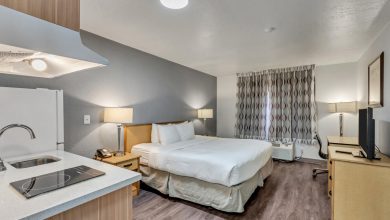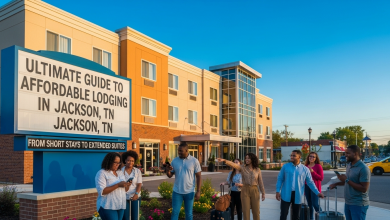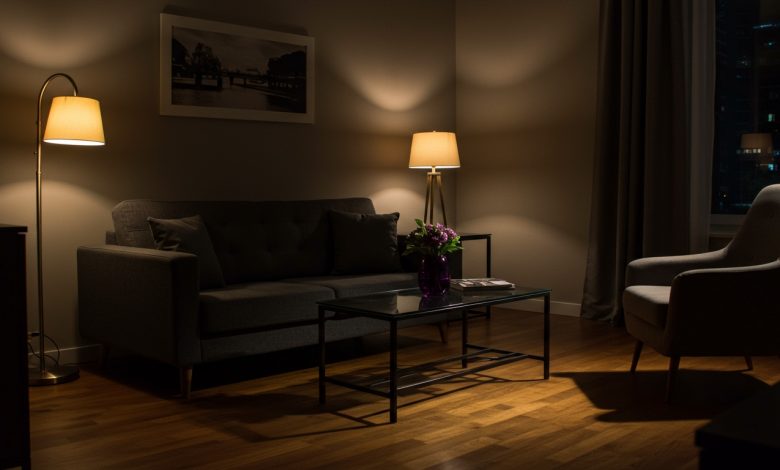
Why Choose Living in a Hotel? Pros and Cons
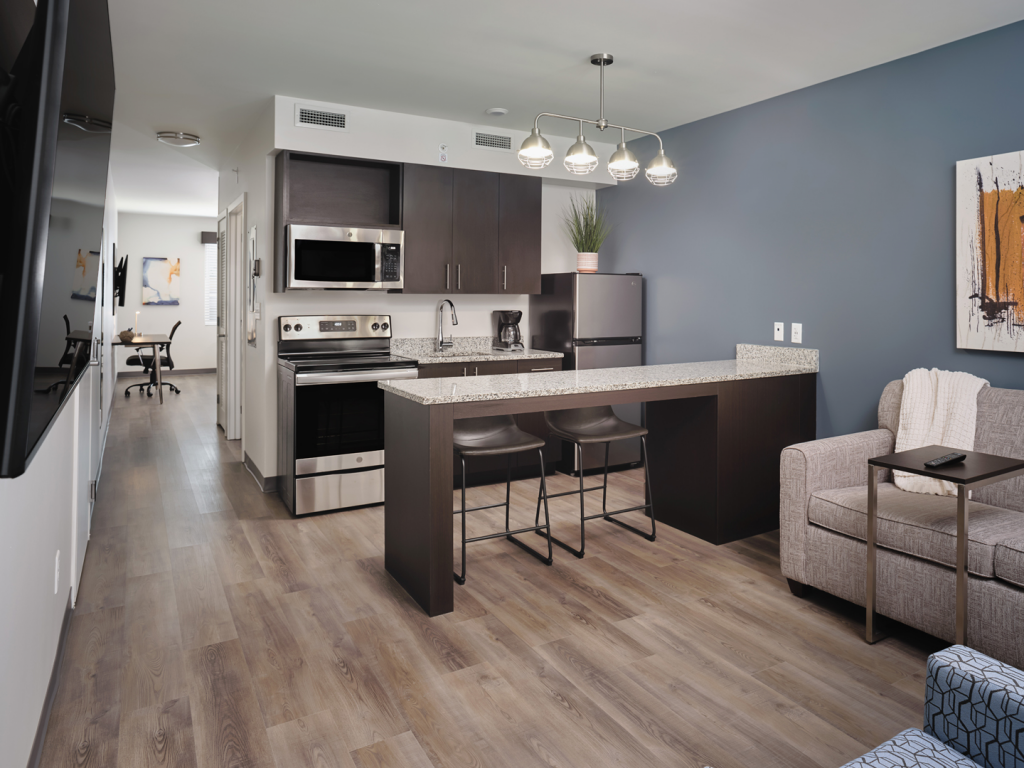
Living in a hotel long-term blends the perks of travel with everyday convenience, but it’s not without challenges. From my experience analyzing extended-stay trends, this lifestyle suits those prioritizing flexibility over permanence. Here’s a balanced look based on 2025 insights.
Key Pros
- Convenience and Amenities: Enjoy daily housekeeping, on-site laundry, gyms, and pools without extra effort. Many include free breakfast or evening socials, enhancing the home-like feel.
- Flexibility Without Leases: No long-term contracts—stay week-to-week or month-to-month, ideal for business travelers or relocators. This lease-free living allows easy moves.
- Prime Locations: Hotels are often in central or accessible areas, near airports, offices, or attractions, saving on commute costs and time.
- Cost Savings on Utilities and Maintenance: All-inclusive rates cover Wi-Fi, utilities, and repairs—no surprise bills.
- Community and Security: 24/7 staff, secure access, and social events combat isolation, especially for solo travelers.
Key Cons
Limited Space and Storage: Rooms are compact (often 300–600 sq ft), making it hard to store belongings or personalize the space.
Higher Costs Long-Term: While convenient, hotel living can be pricier than apartments—expect $1,500–$3,000/month after discounts, versus lower rental rates.
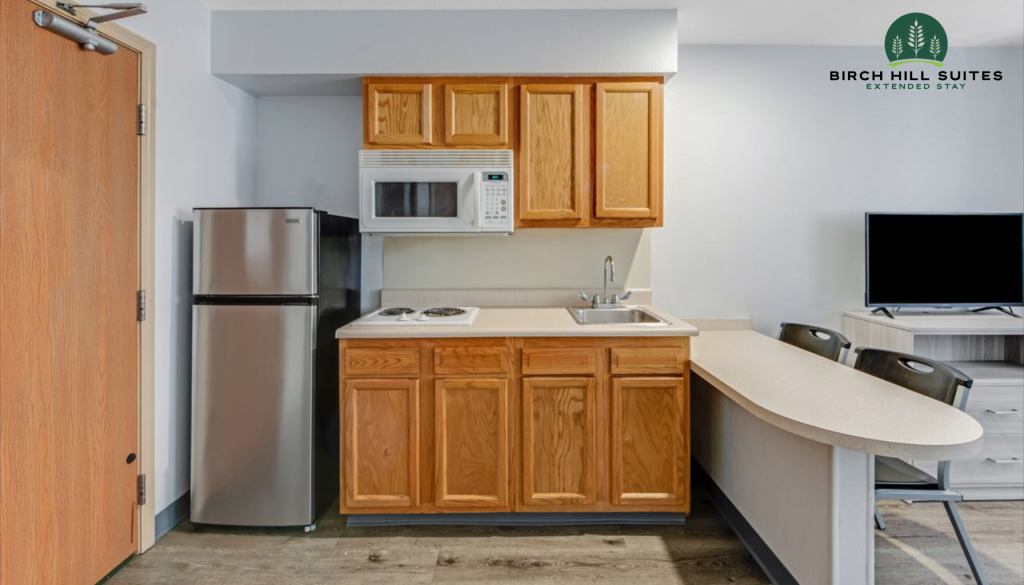
Potential for Cramped Living: Extended time in one room can feel confining, lacking the variety of a full home. Legal and Policy Restrictions: Some hotels cap stays at 30 days due to zoning laws; check local regulations. Lack of Customization: No major decor changes or pet policies in all properties.
Top Extended-Stay Hotel Chains for Living in a Hotel in 2025
Based on 2025 rankings and my analysis of user reviews, these chains excel in long-term accommodations with kitchens, laundry, and flexible rates. Supply has grown 3.5% year-over-year, topping 612,000 rooms.
Leading Chains and Features
| Hotel Chain | Key Features | Best For | Average Monthly Rate (2025) | Loyalty Perks |
|---|---|---|---|---|
| Hyatt House | Full kitchens, free breakfast, workspaces | Upscale long-term | $2,100–$3,000 | World of Hyatt points |
| Staybridge Suites | Kitchens, evening socials, pet-friendly | Families/groups | $1,800–$2,700 | IHG One Rewards |
| Residence Inn by Marriott | Spacious suites, grocery service | Business travelers | $2,000–$3,000 | Marriott Bonvoy |
| Homewood Suites by Hilton | Complimentary dinners, full kitchens | Value seekers | $1,800–$2,500 | Hilton Honors |
| Extended Stay America | Affordable kitchens, weekly housekeeping | Budget long-term | $1,500–$2,200 | ESA Rewards |
| WoodSpring Suites | Basic kitchens, no-frills | Economy stays | $1,200–$2,000 | Choice Privileges |
| Home2 Suites by Hilton | Modular rooms, laundry | Modern nomads | $1,700–$2,400 | Hilton Honors |
| TownePlace Suites by Marriott | Kitchens, outdoor spaces | Extended families | $1,900–$2,800 | Marriott Bonvoy |
Costs of Living in a Hotel in 2025
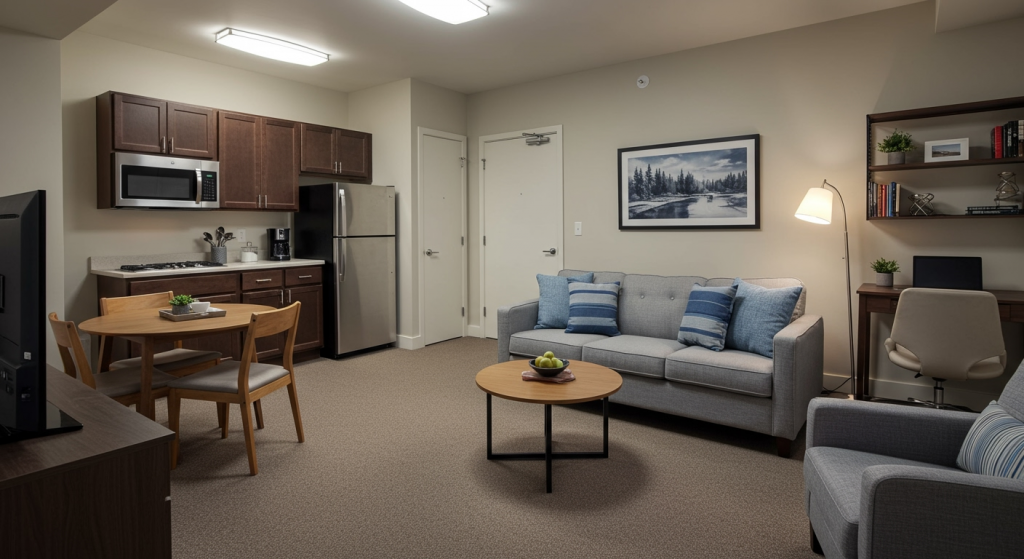
Average U.S. hotel rates are $174/night domestically, but long-term stays drop significantly with discounts—up to 60% off for 30+ nights. Expect $1,200–$3,000/month, varying by location (e.g., $320/night in Boston). Budget chains like Extended Stay America offer rates from $100/night, equating to $1,500/month after savings.
How to Start Living in a Hotel: Tips and Booking
Expert Tips
- Negotiate Rates: Ask for weekly/monthly discounts; chains like Extended Stay save up to 60%.
- Join Loyalty Programs: Earn free nights and perks.
- Verify Policies: Check stay limits and amenities like kitchens.
- Budget for Extras: Factor in taxes and fees.
- Test Short-Term: Start with a week to assess fit.
- Use Apps: Direct bookings often yield better deals.
- Consider Locations: Opt for suburban spots for lower rates.
FAQs
Is Living in a Hotel Cheaper Than Renting?
Rarely long-term—hotels cost more, but short-term flexibility can save on utilities.
Can You Live in a Hotel Indefinitely?
Technically yes, but policies vary; some limit to 30 days due to laws.
What Amenities Are Essential for Long-Term Stays?
Kitchens, laundry, and Wi-Fi—brands like Residence Inn excel here.
How Has the Market Changed in 2025?
Growth in supply and demand, with focus on personalized, affordable options.
